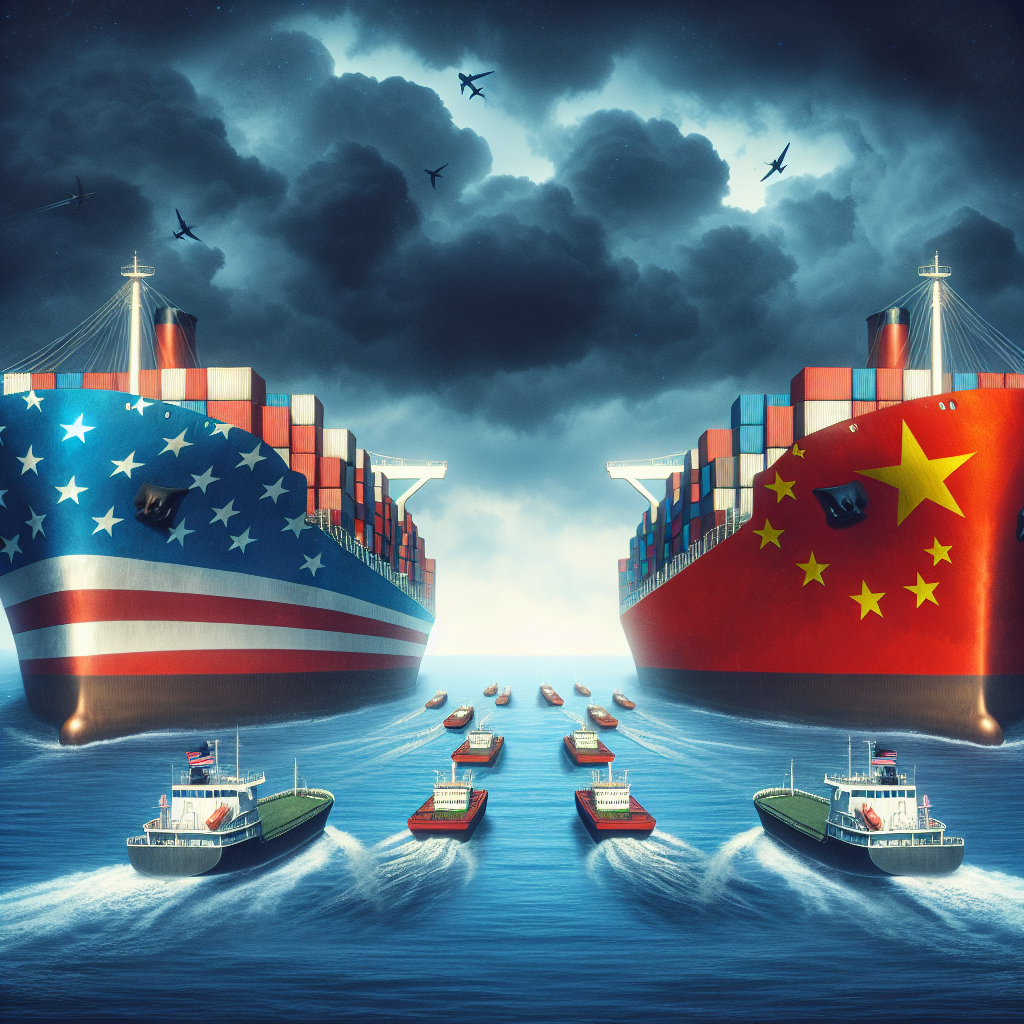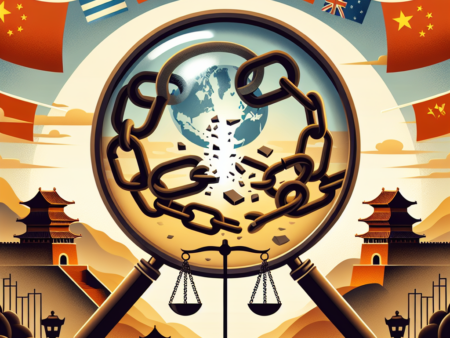Perang Dagang: Amerika Serikat vs. China adalah konflik ekonomi antara dua negara terbesar di dunia yang berdampak global.
Perang Dagang: Amerika Serikat vs. China
-
Table of Contents
Introduction

The trade war between the United States and China has been a topic of great interest and concern for many countries around the world, including Indonesia. As two of the largest economies in the world, any conflict between these two giants can have significant implications for global trade and economic stability. In this article, we will explore the background of the trade war, its impact on Indonesia, and the potential future scenarios that may unfold.
The Origins of the Trade War
The trade war between the United States and China can be traced back to the early days of the Trump administration. In 2018, President Donald Trump imposed tariffs on billions of dollars’ worth of Chinese goods, citing unfair trade practices and intellectual property theft. China retaliated by imposing tariffs on American goods, leading to a tit-for-tat escalation of trade barriers between the two countries.
Unfair Trade Practices
One of the main grievances of the United States against China is its alleged unfair trade practices. The U.S. accuses China of subsidizing its industries, manipulating its currency, and engaging in intellectual property theft. These practices, according to the U.S., give Chinese companies an unfair advantage in international trade and harm American businesses.
Intellectual Property Theft
Intellectual property theft has been a major concern for the United States. American companies claim that China has been stealing their technology and trade secrets, costing them billions of dollars in lost revenue. This issue has been a significant point of contention in the trade war, with the U.S. demanding stronger protection of intellectual property rights from China.
Impact on Indonesia
As a neighboring country and a major player in Southeast Asia, Indonesia has not been immune to the effects of the trade war between the United States and China. The trade tensions between these two economic powerhouses have had both direct and indirect consequences for Indonesia’s economy.
Direct Impact on Exports
Indonesia, like many other countries, has seen a decline in its exports to both the United States and China. The imposition of tariffs by both countries has made Indonesian goods more expensive and less competitive in these markets. Industries such as textiles, electronics, and palm oil have been particularly affected.
Shift in Supply Chains
The trade war has also led to a shift in global supply chains, as companies seek to diversify their production away from China. Indonesia has been one of the countries that have benefited from this shift. Many companies have relocated their manufacturing facilities to Indonesia to avoid the tariffs imposed by the United States on Chinese goods. This has created new opportunities for Indonesian industries and boosted foreign direct investment in the country.
Indirect Effects on Investment
The trade war has created uncertainty in global markets, leading to a decline in investment worldwide. Indonesia has not been immune to this trend, as investors become cautious and delay their investment decisions. The volatility in global financial markets has also put pressure on Indonesia’s currency, the rupiah, making it more vulnerable to external shocks.
Future Scenarios
The trade war between the United States and China is an ongoing conflict with no clear resolution in sight. Several future scenarios could unfold, each with its own implications for Indonesia and the global economy.
Escalation of the Trade War
One possible scenario is an escalation of the trade war, with both countries imposing even higher tariffs on each other’s goods. This would further disrupt global supply chains and negatively impact Indonesia’s exports. The uncertainty and volatility in global markets would also continue, affecting investment and economic growth.
Trade Deal and Resolution
Another scenario is a trade deal between the United States and China, resolving their differences and easing trade tensions. This would provide much-needed stability to global markets and boost investor confidence. Indonesia could benefit from increased trade between the two countries and a more predictable global economic environment.
Decoupling of Economies
A more extreme scenario is the decoupling of the U.S. and Chinese economies, with each country relying less on the other for trade and investment. This would have significant implications for Indonesia, as it would need to reassess its economic relationships with both countries. Indonesia may need to strengthen its ties with other trading partners and diversify its export markets to mitigate the impact of a decoupling scenario.
Summary
The trade war between the United States and China has had a significant impact on Indonesia’s economy. The decline in exports, shift in supply chains, and volatility in global markets have all affected Indonesia’s trade and investment climate. The future scenarios of the trade war remain uncertain, with potential escalations, resolutions, or even decoupling of the two economies. It is crucial for Indonesia to closely monitor the developments and adapt its economic strategies accordingly to minimize the negative effects and seize any opportunities that may arise.







